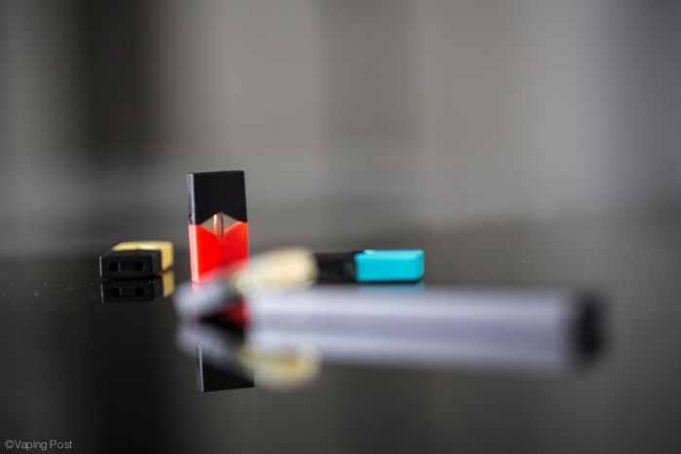In 2019, Yogi Hale Hendlin from the Center for Tobacco Control Research and Education at the University of California and colleagues, had conducted a study aiming to examine the disposal of e-cigarette waste. The research was conducted across 12 San Francisco Bay area high schools by looking for JUUL or JUUL-compatible product waste in the parking lots of 10 out of the 12 schools. The researchers collected 172 waste items, mainly mango, mint and cucumber flavoured capsules, which were littering the ground.
“The presence of JUUL waste in our sample of high schools suggests that JUUL waste disposal is a significant environmental problem, particularly at high schools with more affluent student populations,” said the researchers.
The alarming amount of Juul waste
The author also referred to Hendlin’s study and asked the researchers for more details about the components that make up Juul. Besides the chemical residues that leak from Juul waste when it is disposed and contaminate the environment, the plastic elements alone are cause for alarm, explained Mock.
“[When] you look at the Juul pod, it’s got 3 major plastic components: the capsule itself, the black cap, and the cap that is removed when inserted into the device. Those are the 3 main plastic components, which rapidly break apart. You take those each, and you divide those as individual components, [and] we’re talking about roughly 2 billion Juul waste items that are discarded or will be discarded [in 2019], assuming no growth. [And] that’s just in the U.S.,” said Mock, adding, “Where [and how] they’re discarded, we don’t know.”
Calculating the real impact is impossible
The founder and executive director of Clean Ocean Action, Cindy Zipf, added that given that sea animals eat anything that is floating in the water (and its recipient), it is impossible to calculate the real impact that this waste is having on marine life. “[Even when they degrade], they are just getting smaller and smaller and affecting more and more animals at the smaller very base of the food chain,” she continued.
To this effect, argues Hendlin, Juul should practice Extended Producer Responsibility. ”What [Juul needs] to do is for each pod you buy, put a buck tax on it, which is a deposit,” Hendlin summarizes. “When you buy electronics, [like an] Apple computer, you pay an extra [fee so that] when you deliver the machine to an electronic waste recycler or to Apple themselves, they’ll pay you to take their product back.”
Juul pilots a take back and recycling program
Referring to the matter, last year a JUUL spokesperson had said that the company was piloting an internal take back and recycling program with employees in a number of its offices, with the aim of launching it publicly “in the near future”. “As part of our goal to eliminate combustible cigarettes, we are committed to responsible stewardship and environmental sustainability,” said the spokesperson.













